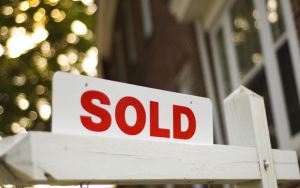
Not long ago, Frank Kwok moved from a 900-square-foot townhouse on the North Shore of Oahu "because we wanted our own home with a yard and everything." So he bought a 2,500-square-foot home in what he calls the "bustling suburb" of Kapolei, not far from Honolulu.
He kept the tiny townhouse in the beach town of Haleiwa. It's now his family's second home: "We go back there whenever we don't want to be bothered by neighbors."
Kwok did it backward -- turning the first home into the getaway home -- but he did something that many Americans do or dream of doing: He bought a second home.
Buying a second home isn't much different from buying a primary residence. If you don't rent it out regularly, so it's not considered an investment property, you can get the same mortgage rate that you would get on your primary house. Depending on circumstances, you might be able to deduct the mortgage interest from income taxes.
When you shop for a second or vacation home, you have two friends: time and your primary home's equity.
"If they look for a second home, people need to be patient," Kwok says. "Don't rush into it. They already have a place to live. Weigh the pros and cons of each place."
Bob Walters, vice president of Quicken Mortgage, delivers the same advice. "Don't make any rash decisions," he says. "There's no reason you have to buy it right now. If you find a place and love the place, stew on it a couple of months. It'll still be there."
The cooling-off period
During your self-imposed cooling-off period, think long and hard about how often you will visit and how much time you will spend. Are you the type of person who buys a 12-month health-club membership, then stops going after a few weeks? If you are, what makes you think you will treat the vacation home differently?

Even if you feel positive that you will spend sufficient time at the second home, you must decide whether it's worth the money. "I think second homes, more so than primary residences, have to be treated as an investment," Walters says. And he's not talking about investment properties that are rented out.
"You have to view it with a cold and calculated eye," Walters says.
How much time will you spend there? What will be the price appreciation -- realistically? How much will you have to pay every year for landscaping, association dues, garbage collection and taxes?
"They have got to do the math," Walters says. "Calculate how much it will cost them annually. Calculate their financial return."
And don't try to time the purchase to get a better price. That tactic rarely works, says Diane Saatchi, a real estate agent who sells homes in the Hamptons on Long Island. Buyers sometimes think they'll get a better deal on a home in the Hamptons in the winter, or on a home in Florida in the summer. But sellers are savvy, and home values don't fluctuate by season.
"What I tell people all the time is that the best time to buy a house is when you want a house," Saatchi says.
Source: www.bankrate.com; Holden Lewis; Accessed March 5, 2012
 Not long ago, Frank Kwok moved from a 900-square-foot townhouse on the North Shore of Oahu "because we wanted our own home with a yard and everything." So he bought a 2,500-square-foot home in what he calls the "bustling suburb" of Kapolei, not far from Honolulu.
He kept the tiny townhouse in the beach town of Haleiwa. It's now his family's second home: "We go back there whenever we don't want to be bothered by neighbors."
Kwok did it backward -- turning the first home into the getaway home -- but he did something that many Americans do or dream of doing: He bought a second home.
Buying a second home isn't much different from buying a primary residence. If you don't rent it out regularly, so it's not considered an investment property, you can get the same mortgage rate that you would get on your primary house. Depending on circumstances, you might be able to deduct the mortgage interest from income taxes.
When you shop for a second or vacation home, you have two friends: time and your primary home's equity.
"If they look for a second home, people need to be patient," Kwok says. "Don't rush into it. They already have a place to live. Weigh the pros and cons of each place."
Bob Walters, vice president of Quicken Mortgage, delivers the same advice. "Don't make any rash decisions," he says. "There's no reason you have to buy it right now. If you find a place and love the place, stew on it a couple of months. It'll still be there."
The cooling-off period
During your self-imposed cooling-off period, think long and hard about how often you will visit and how much time you will spend. Are you the type of person who buys a 12-month health-club membership, then stops going after a few weeks? If you are, what makes you think you will treat the vacation home differently?
Not long ago, Frank Kwok moved from a 900-square-foot townhouse on the North Shore of Oahu "because we wanted our own home with a yard and everything." So he bought a 2,500-square-foot home in what he calls the "bustling suburb" of Kapolei, not far from Honolulu.
He kept the tiny townhouse in the beach town of Haleiwa. It's now his family's second home: "We go back there whenever we don't want to be bothered by neighbors."
Kwok did it backward -- turning the first home into the getaway home -- but he did something that many Americans do or dream of doing: He bought a second home.
Buying a second home isn't much different from buying a primary residence. If you don't rent it out regularly, so it's not considered an investment property, you can get the same mortgage rate that you would get on your primary house. Depending on circumstances, you might be able to deduct the mortgage interest from income taxes.
When you shop for a second or vacation home, you have two friends: time and your primary home's equity.
"If they look for a second home, people need to be patient," Kwok says. "Don't rush into it. They already have a place to live. Weigh the pros and cons of each place."
Bob Walters, vice president of Quicken Mortgage, delivers the same advice. "Don't make any rash decisions," he says. "There's no reason you have to buy it right now. If you find a place and love the place, stew on it a couple of months. It'll still be there."
The cooling-off period
During your self-imposed cooling-off period, think long and hard about how often you will visit and how much time you will spend. Are you the type of person who buys a 12-month health-club membership, then stops going after a few weeks? If you are, what makes you think you will treat the vacation home differently?
 Even if you feel positive that you will spend sufficient time at the second home, you must decide whether it's worth the money. "I think second homes, more so than primary residences, have to be treated as an investment," Walters says. And he's not talking about investment properties that are rented out.
"You have to view it with a cold and calculated eye," Walters says.
How much time will you spend there? What will be the price appreciation -- realistically? How much will you have to pay every year for landscaping, association dues, garbage collection and taxes?
"They have got to do the math," Walters says. "Calculate how much it will cost them annually. Calculate their financial return."
And don't try to time the purchase to get a better price. That tactic rarely works, says Diane Saatchi, a real estate agent who sells homes in the Hamptons on Long Island. Buyers sometimes think they'll get a better deal on a home in the Hamptons in the winter, or on a home in Florida in the summer. But sellers are savvy, and home values don't fluctuate by season.
"What I tell people all the time is that the best time to buy a house is when you want a house," Saatchi says.
Source: www.bankrate.com; Holden Lewis; Accessed March 5, 2012
Even if you feel positive that you will spend sufficient time at the second home, you must decide whether it's worth the money. "I think second homes, more so than primary residences, have to be treated as an investment," Walters says. And he's not talking about investment properties that are rented out.
"You have to view it with a cold and calculated eye," Walters says.
How much time will you spend there? What will be the price appreciation -- realistically? How much will you have to pay every year for landscaping, association dues, garbage collection and taxes?
"They have got to do the math," Walters says. "Calculate how much it will cost them annually. Calculate their financial return."
And don't try to time the purchase to get a better price. That tactic rarely works, says Diane Saatchi, a real estate agent who sells homes in the Hamptons on Long Island. Buyers sometimes think they'll get a better deal on a home in the Hamptons in the winter, or on a home in Florida in the summer. But sellers are savvy, and home values don't fluctuate by season.
"What I tell people all the time is that the best time to buy a house is when you want a house," Saatchi says.
Source: www.bankrate.com; Holden Lewis; Accessed March 5, 2012 



